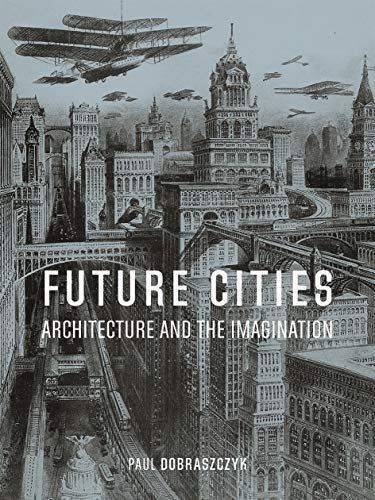
Future Cities Architecture and the Imagination
Though reaching ever further toward the skies, today’s cities are overshadowed by multiple threats: climate change, overpopulation, social division, and urban warfare all endanger our metropolitan way of life. The fundamental tool we use to make sense of these uncertain city futures is the imagination. Architects, artists, filmmakers, and fiction writers have long been inspired to imagine cities of the future, but their speculative visions tend to be seen very differently from scientific predictions: flights of fancy on the one hand versus practical reasoning on the other. In a digital age when the real and the fantastic coexist as near equals, it is especially important to know how these two forces are entangled, and how together they may help us best conceive of cities yet to come. Exploring a breathtaking range of imagined cities—submerged, floating, flying, vertical, underground, ruined, and salvaged—Future Cities teases out the links between speculation and reality, arguing that there is no clear separation between the two. In the Netherlands, prototype floating cities are already being built; Dubai’s recent skyscrapers resemble those of science-fiction cities of the past; while makeshift settlements built by the urban poor in the developing world are already like the dystopian cities of cyberpunk. Bringing together architecture, fiction, film, and visual art, Paul Dobraszczyk reconnects the imaginary city with the real, proposing a future for humanity that is firmly grounded in the present and in the diverse creative practices already at our fingertips.